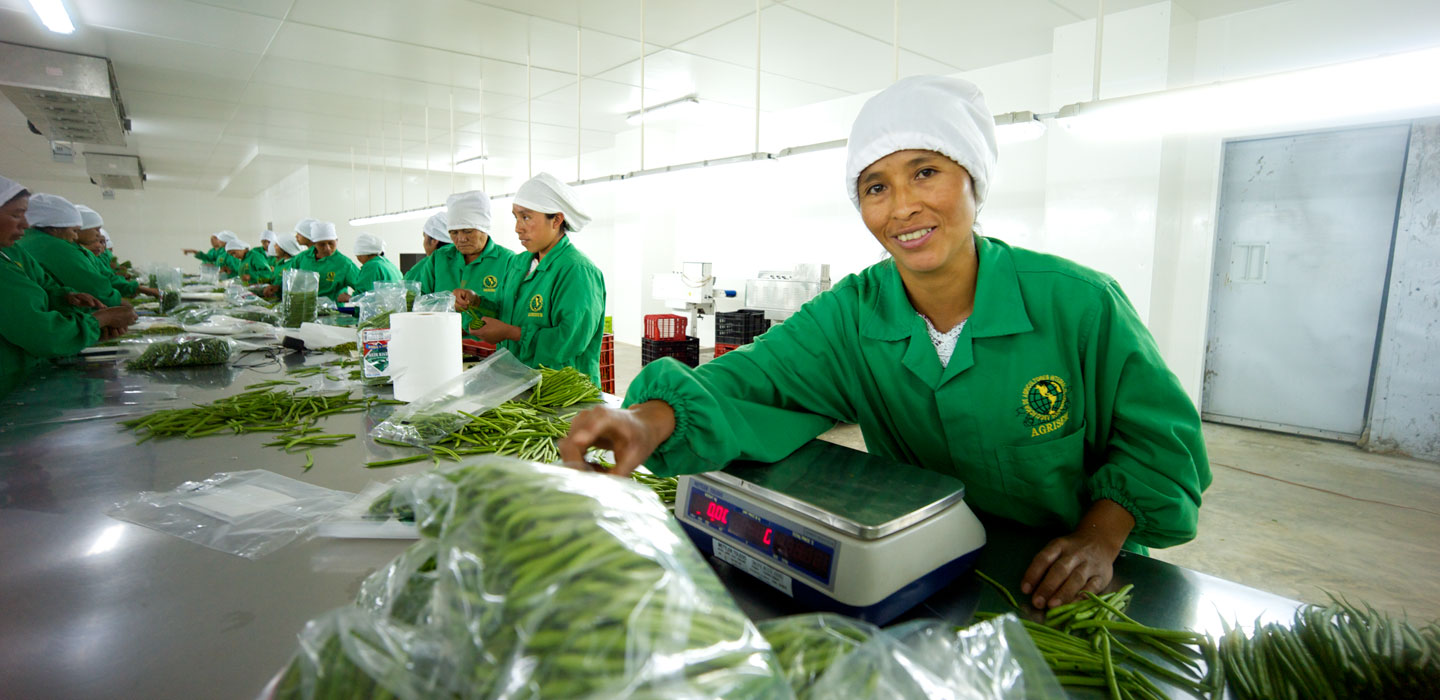A common path towards Guatemala’s sustainable development
IFAD Asset Request Portlet
Asset Publisher
A common path towards Guatemala’s sustainable development
13 September 2019
©IFAD/Santiago Albert Pons
13 September 2019, Rome. Today the Rome-based agencies (RBAs - FAO, IFAD and WFP) recognized the interagency country team based in Guatemala for their concerted efforts in maximizing results and impact on the ground.
The country team was selected as the winner of the RBA Award for their excellence in fieldwork over the course of 2016-2017. The Award was presented during the third edition of the Informal Joint Meeting of the RBA Governing Bodies.
The biennial RBA Award of Excellence, established in 2012, celebrates the RBA country teams who spearhead innovative approaches to working together. The Award recognizes country teams who have come together to increase synergies, efficiency and effectiveness - working collectively to maximize our joint contribution to the 2030 Agenda and Sustainable Development Goals (SDGs).
A Group Effort
Over the past five years, the RBAs have advanced coordination efforts in the country at planning, implementation and M&E levels, as well as fostering evidence-based policy impact alongside government institutions and other key stakeholders. To this end, the Guatemala interagency country team has established a common vision to guarantee a multiplier effect, identifying a number of priority areas to further strengthen collaborative efforts and joint actions towards achievement of SDG2.
The interagency collaboration in Guatemala is a flagship example of each agency leveraging their comparative advantage and expertise to deliver better results together and broker new partnerships and joint programming efforts.
FAO supported the government in policy dialogues with strategic partners, strengthening discussions on law initiatives, including the School Feeding, Family Farming and Healthy Eating laws. This led to the country’s adoption of the first national school-feeding law, which prioritises small-scale farmers by linking them as suppliers of healthy foods for school menus. FAO also worked with local institutions to strengthen famers’ resilience to recurrent droughts in the Dry Corridor and empower women through timesaving agricultural technologies, as part of the RBA Joint Programme on Rural Women’s Economic Empowerment, alongside UN Women.
IFAD focused on strengthening the capacity of family farmers‘ organizations, promoting and investing in new technologies to increase productivity and added value in sustainable production approaches and value chains. IFAD also promoted partnerships and investments in the implementation of Household Methodologies (HHMs/GALS), women's savings groups, the implementation of ICTs in value chains to mitigate climate and markets risks, promoting joint investments with national programmes funded by IFAD, and the promotion of generating more quantitative evidence through the implementation of the Women's Empowerment in Agriculture Index (WEAI).
WFP supported government programmes and worked closely with women, children, health professionals, local authorities and communities to break the cycle of malnutrition. Vulnerable food insecure communities and smallholder farmers affected by climate change were supported to diversify livelihoods and increase incomes to overcome food insecurity. In the framework of JP-RWEE, women farmers received support to organize themselves into producer organizations, increase their surplus through access to sustainable production techniques, high quality agricultural inputs, and innovative technologies such as the mobile laboratory “Blue Box”, which detects aflatoxins in corn production. This holistic support was accompanied by awareness-raising campaigns to increase men and boys’ participation in household chores, including the preparation of nutritious food, and to prevent gender-based violence.
National and Regional coordination efforts
At the programmatic level, the RBAs, together with UN Women, are strengthening local capacities though the joint programme "Accelerating progress for the economic empowerment of rural women” (JP-RWEE) in three municipalities in Alta Verapaz experiencing extreme poverty and food insecurity, climatic vulnerability, and social conflict. Given that the central focus of the programme is on the multidimensional empowerment of rural women, the RBAs tested (HHMs/GALS) to promote gender equality and close gender gaps. HHMs recognize that women's empowerment cannot be achieved without change at the household level involving all members, young and old, women and men.
At both national and regional levels, the RBAs have coordinated various advocacy initiatives on SDG1 and SDG2 – focusing on the linkages between food and nutrition security, migration and rural development. Moreover, the joint advocacy initiatives have brought together various sectors and stakeholders to raise awareness on a number of key issues in Guatemala - the forms of malnutrition present; the importance of creating linkages between smallholder farmers and markets; opportunities afforded by school-feeding and public purchases; and the need to promote better practices to reduce food loss and waste.
Concerted efforts leading to greater results
The collaborative efforts made by the RBAs, which included a clear set of responsibilities and common goals has yielded a series of concrete results. RBA activities in Guatemala from 2016-2017 have directly benefitted more than 350,000 rural people, including some of the most marginalized populations - rural women, youth, children, and indigenous peoples. The activities have strengthened local capacities, prioritized rural women as community promoters, and improved access to and control of natural resources and productive assets for women.
The 2030 Agenda cannot be achieved by one agency alone – it requires the RBAs and other stakeholders to explore new approaches in working together, identify opportunities for aligning complementary activities within projects and programmes.
The RBA Award of Excellence provides an incentive to country teams to scale up their partnership efforts on the ground - with the ultimate common goal of having a greater impact on the people we serve.